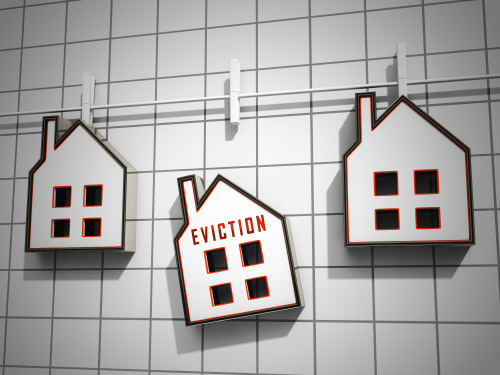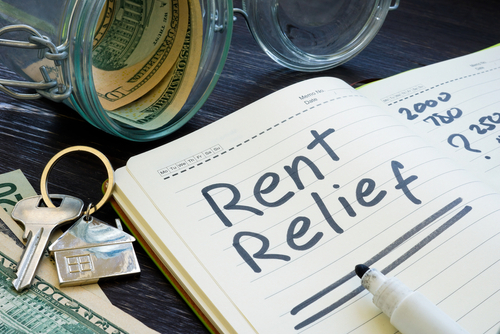
The effects of the COVID-19 pandemic are far from over. For landlords and tenants, changing regulations can trigger frustration, fear, or even confusion. While federal and state agencies have established rent relief programs to try and prevent the onslaught of evictions, to date, only a fraction of those funds has been distributed. So, how can tenants protect themselves with the expiration of the Federal Eviction Moratorium becoming a harsh reality? Continue reading below as we discuss the status of the moratorium on evictions and what to do if you are facing eviction.
What is the Moratorium on Evictions?
COVID-19 wreaked havoc on the rental housing industry. As the country and businesses shut down, millions of Americans suddenly lost their source of income. Therefore, in response to the pandemic, the government took steps to prevent renters from losing their homes due to non-payment. According to the CDC, increasing evictions presented an immediate public health emergency, and so, a moratorium on evictions began. To qualify for protection, tenants must meet the following criteria –
- Tenants lost their source of income, work, or faced “extraordinary medical expenses” due to COVID.
- Earn less than $99,000 annually as an individual or $198,000 for a couple filing taxes jointly.
- Tenants made every effort to make partial and on-time payments whenever possible.
- Residents made efforts to seek emergency rental assistance through state or government grants.
- Eviction would force the occupants to become homeless or otherwise move to overcrowded conditions.

The moratorium on evictions meant that landlords could not take the following actions against tenants that qualified for protection.
- Landlords cannot seek to evict a tenant for unpaid rent.
- Property owners cannot ask the court to issue a writ of eviction.
- Guidelines prohibit landlords from issuing tenants an eviction notice.
- Owners cannot engage in self-help evictions or force tenants to vacate.
However, tenants are still responsible for any back rent under the terms of their lease, and landlords could still legally file against tenants for other infractions such as lease violations.
What is the Status of the Moratorium on Evictions?
Despite appeals from the Biden administration, on August 26, 2021, the United States Supreme Court rejected further extensions to the moratorium on evictions. Although it was not a unanimous decision, the court’s opinion speaks to the CDC overstepping their authority, saying, “the CDC has imposed a nationwide moratorium on evictions in reliance on a decades-old statute that authorizes it to implement measures like fumigation and pest extermination.” The opinion continues by saying, “it strains credulity to believe that this statute grants the C.D.C. the sweeping authority that it asserts.” Although the Delta variant is rising across the nation, the Supreme Court cites, “our system does not permit agencies to act unlawfully even in pursuit of desirable ends.”
For tenants, this means that unless states step in individually by enacting their own guidelines, landlords can move forward with seeking eviction for non-payment.
What is Next for the Eviction Moratorium?
Across Pennsylvania and other states, local jurisdictions are taking steps to further protect renters from unnecessary evictions. For example, in some counties, courts may pause evictions for up to an additional 60 days in an effort to get much-needed relief aid into the hands of those who need it most. This is especially helpful as many communities continue to have high transmission rates of the ultra-contagious delta variant.

Even if states or local authorities do not extend the moratorium on evictions, much can be done to bring relief to tenants and landlords. Although Pennsylvania alone has $847 million in relief funding to spend, with more on the way, only a fraction of that is in the hands of tenants. That said, each county administers its own rent relief programs, and the sheer volume of the task can slow down critical processing. Unfortunately, some applicants are left waiting weeks for authorities to review their requests. As a result, states and local emergency relief programs must focus on –
- Getting the word out so tenants and landlords are aware of available emergency relief programs.
- Improving application processing by utilizing self-attestations, categorical eligibility criteria, and income-based proxies to determine eligibility.
- Programs should consider distributing emergency relief direct to tenants if landlords are uncooperative.
- Develop information-sharing partnerships with the local court to help stop evictions for cases where parties have applied for assistance but not yet received finds.
- Utilize allocations to increase staffing and improve processing efficiency.
- Foster relationships with smaller local programs that can help improve outreach, support, and distribution of funds.
Where to Turn if You Need Emergency Rental Assistance?
For tenants struggling with mounting back rent due and impending eviction, help is out there. Emergency rental assistance programs can help tenants remain in their homes despite the expired moratorium on evictions. While this can seem overwhelming and stressful, the first step is to review who qualifies for assistance. Keep in mind, Pennsylvania tenants can apply themselves, or a landlord can apply on behalf of the tenant.

Who Qualifies for Emergency Rental Aid?
Not every situation or circumstance qualifies for financial aid under the emergency relief program. That said, tenants and landlords should actively check all local guidance to decide their next steps. Some of the typical qualifications include the following –
- One or more individuals within the rental household qualify for unemployment benefits, experienced a decrease in income, have increased household costs or experienced other financial hardship due directly or indirectly to the COVID-19 pandemic.
- The household has an income at or below 80 percent of Area Median Income (AMI). That said, income limits vary by county. So, check with local county guidelines to review income limitations for emergency assistance.
- One or more individuals in the rental household can show a risk of experiencing homelessness or housing instability.
How to Apply for Rental Assistance in Pennsylvania?
Each county will have its own application portal for rental assistance. However, many county emergency aid applications can be found through the state website. That said, applications require certain documentation and information from tenants or landlords to qualify. Some of this information will include –
- Government Issued ID such as a driver’s license, state-issued ID card, or passport
- Proof of income for all household members over the age of 18
- Copy of the rental lease
- Documents showing any rent due in arrears
- Contact information for the landlord or property management company
- Evidence of utility expenses like electric, water, oil, and natural gas along with utility provider information.
In some cases, the program authorities will need additional information to determine eligibility and assistance payments. Typically, this documentation includes –
- An unemployment determination letter or proof of a decrease in household income due to COVID-19 (pay stubs or a letter from your employer).
- Paystubs, W-2s, other wage statements, tax filings, direct deposit records, or attestation from an employer.
- Documentation of unearned income such as unemployment benefits, social security benefits, retirement benefits, child/spousal support, etc.
- Documents that show other housing-related expenses experienced due to the pandemic.
Other Ways to Seek Emergency Assistance
- Call 2-1-1 at any time 24/7 and select “2” for Housing Resources, then follow the prompts.
- Visit your county’s website for added guidelines and instructions
The Best Advice for Tenants After the Moratorium on Evictions Expiration
As a tenant trying to bounce back in the wake of the pandemic, one of the first and best steps is to talk to your landlord. Whether you have a private landlord or an experienced property management firm, communication is critical. Often, landlords are more willing to work with those tenants willing to work with them. In some cases, a separate payment plan may be an option to address back rent due and avoid eviction. So, reach out as soon as possible to discuss your situation with the landlord and review the next steps, including applying for emergency rental relief.
